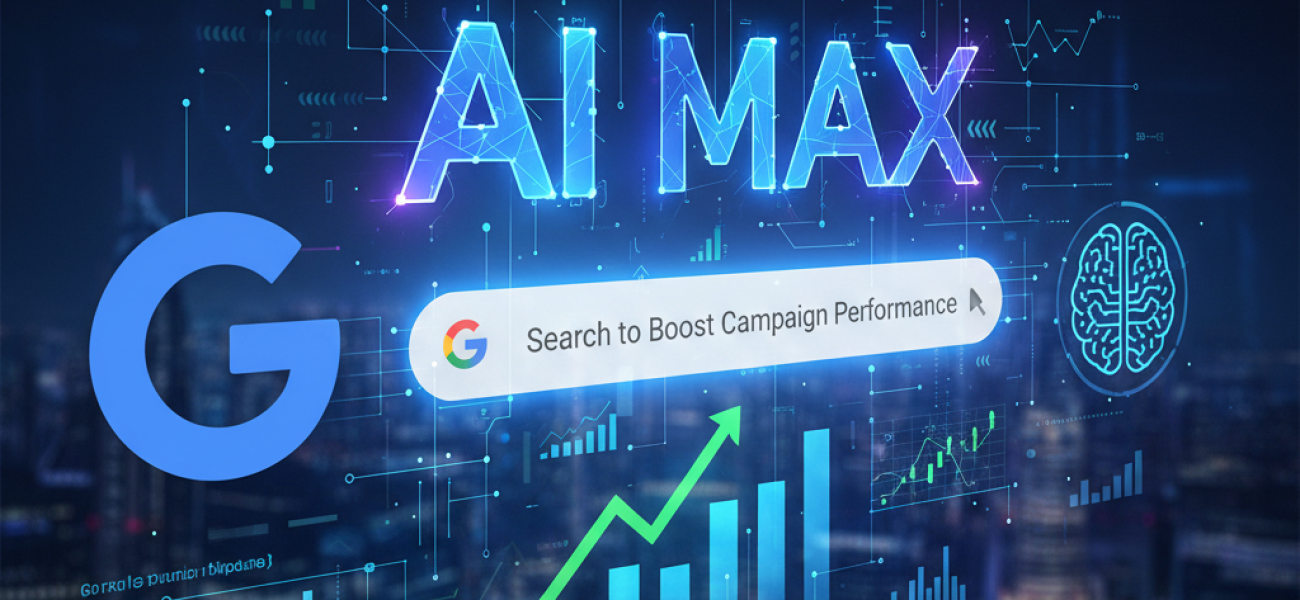The recent Google Ads update introduces AI Max for Search, a powerful innovation in digital marketing designed to enhance campaign performance through automation and AI marketing. This update marks a significant advancement for advertisers aiming to optimize their campaigns and increase return on advertising spend with minimal manual effort.
Understanding AI Max for Search in Google Ads
AI Max for Search is an automated campaign type that leverages advanced machine learning to dynamically allocate budgets and adjust bids across search keywords. Unlike traditional keyword-targeted campaigns that often rely on exact and phrase matches, AI Max expands targeting by analyzing user intent signals and contextual data in real-time. This results in smarter placements and improved efficiency.
Experts in the digital marketing industry note that AI Max seamlessly integrates with Google’s broader AI marketing ecosystem, building on automation trends within Google Ads. The goal is to reduce manual overhead and capitalize on machine-led optimization, which can identify valuable conversion opportunities that might be overlooked in manual setups.
“AI Max for Search represents the next step in campaign automation, enabling advertisers to capture demand peaks efficiently with optimized budget usage,” says Marie Chen, a digital marketing strategist. “Its ability to adapt quickly to market shifts is invaluable in today’s fast-paced advertising environment.”
How AI Max Improves Campaign Performance
Data from early adopters reveal that campaigns using AI Max for Search have experienced approximately 27% more conversions while maintaining similar CPA (cost per acquisition) and ROAS (return on ad spend) levels compared to conventional exact and phrase match keyword campaigns. This improvement is attributed to AI Max’s broader keyword targeting combined with automatic bid adjustments that respond to conversion likelihood.
The AI marketing model underpinning AI Max evaluates numerous signals such as device usage, location, time of day, and user behavior patterns. This results in a more comprehensive understanding of the audience and better prioritization of budget toward high-intent searches. Consequently, advertisers can reach new customer segments without escalating costs or diluting campaign focus.
Furthermore, the integration of Slack alerts and other messaging tools allows marketing teams to monitor campaign performance in real-time. Such automation facilitates rapid response to changing conditions and ensures that campaign objectives remain aligned with business goals.
Implementing AI Max: Best Practices and Considerations
To fully leverage this Google Ads update, marketers should consider a few strategic steps. First, it is essential to transition campaigns gradually while monitoring key metrics closely. Given that AI Max shifts targeting beyond traditional keywords, maintaining a baseline with existing campaigns allows for performance benchmarking.
Secondly, campaign setup should emphasize robust conversion tracking. Accurate data feeds are critical for AI algorithms to optimize effectively. In addition, integrating third-party analytics platforms can provide supplementary insights and validation.
Automation should not lead to total relinquishment of control; rather, marketers should utilize real-time alerts and insights—such as Slack integrations—to maintain situational awareness and make informed adjustments as needed. Adsroid, a digital marketing consultancy, highlights the importance of balancing automation with strategic oversight to maximize outcomes.
“Automation tools like AI Max empower marketers, but human expertise remains vital to interpret data nuances and optimize strategy,” notes John Delgado, Adsroid lead analyst. “Combining AI with expert review yields the strongest campaign performance.”
The Broader Impact on Advertising News and Digital Marketing
This Google Ads update reflects larger trends in advertising news focused on AI-driven automation transforming the digital marketing landscape. As platforms continue incorporating machine learning technologies, advertisers gain tools to drive efficiency and measurable results at scale.
For organizations aiming to stay competitive, adopting AI-based solutions like AI Max for Search is becoming a priority. It aligns with the evolution of consumer behavior where personalized and contextually relevant ads are increasingly demanded. Digital marketers and agencies should stay informed through reliable sources such as the official Google Ads blog (https://ads.google.com/blog) and dedicated marketing news portals to promptly adapt to emerging technologies.
In summary, the Google Ads update with AI Max for Search offers a compelling opportunity for advertisers to enhance campaign performance using AI marketing automation. By carefully integrating these capabilities within their strategies, businesses can achieve improved conversion rates and maintain cost efficiency amidst the evolving digital advertising ecosystem.

